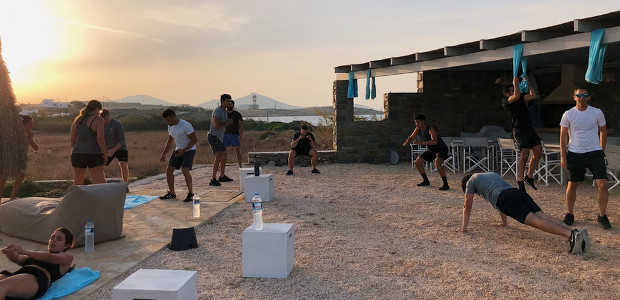Is a low-carb diet when training often actually beneficial?
There is no doubt eating less than you normally eat and reducing your bodies access to resources that it can process into fuel will force your body to eat stored resources to have energy. Reducing carbs can have this impact. Yet we also have learned that sometimes this is unhealthy. Your body uses carbohydrates to make energy which you need to function and carbohydrate is used by the body to maintain healthy cells not least muscle tissues. So if you are training lots then actually you could argue carbohydrate is actually essential!
What is the science telling us about carbohydrates?
It is helpful to begin by defining what a carbohydrate is. So! Carbohydrate is one of a trio of essential resources that your body needs in its diet, and the other two are protein and actually fat. Within the carbohydrate family with regards to the human body again coincidentally there are a trio of types and these are fibre, sugar and starch. With regards to excercising a lot energy is vital to actually being able to excercise. Without energy your body will not be able to prcoess its tasks due to tiredness. Carbohydrates are vital because they provide most of the energy your body uses mentally and physically. In fact our bodies actually take the carbs and transform them to glucose and this in turn is kept as a store actually in muscle tissues and actually in liver tissues to be called upon when required at source in the muscle tissue and on demand from the live cells. With no carbohydrate this process is dramatically affected!
Athletes want to improve their performances and for illustrative purposes think about the muscles used for say running. The idea is to run and do excercises which challenge the muscles to perform better and better under the same conditions and to increase the quality of the performnce by reduce the time taken to perform tasks or covering more distance for example in the same time so getting faster. Improvement is acheived by not only repairing damaged tissue but also restoring lots energy so your system is working hard to do this and it simply cannot repair tissue and store energy without the resources to do so. Carbohydrate is essential for this. It is worth noting however that different types of carbohydrate give a better result in this process for example swapping very sugary carbs for more fibre based carbs is recommended.
The scientests are always working to find out more about these proceses and papaers are being released very regularly analysing performance and diet. A theme however emerging is htat low card and athletic performance do not mix that well. The Lancet Public HEalth has published research showing that low carb diets make people live shorter lives. For example the paper they published claims that the difference in lifespan of is between 79.1 years and 82 years for the same person but in a scenario where they eat 30% less carbs. Further to this in 2018 a paper claimed to show the results of low carb and brain functioning and that this has possibly an affect on dementia. they specifically looked at low carb and high protein v low protein and high carb finding the high carb diet out performed the low carb diet! They suggested again that the fibre based card as opposed to the sugar based was better. Particlarly they have at this time settled on an actual amount of fibre to take and its 25g per day. For comparison a slice of thick brown bread has 2g of fibre! So its a lot of fibre at 25g.
Some further training tips!
Our focus has been here on diet but it is important to remember there are other sometimes overlooked helpful ideas that are always worth reiterating. Getting lots of water so for example just having a bottle of water with you at all time, while commuting, in the gym etc and just consuming that regularly. Then their is resting, some claim that as much as 50% of your time shpould be spent resting physically and mentally, just doing nothing at all really. Of course warming up and warming down before and after training is actually really helpful at avoiding injury and improving your quality of training. Warming up increases blood flow so you will be training more optimally wight from the start. Finally, if you are injured then get it treated. Don’t train with injuries whether skeletal or muscular, and consider using pain relief gels to take the pain away so de-stressing the injury site.
In conclusion we have raised the issue of carbs and lowering carbs here and do your own research by all means but do look into the possible negatives of training lots but reducing your carbohydrate intake. Why not consider the research and try a higher fibre intake as a better source of carbs. So get the data on all of this and use all the ideas to get the most out of your training.
www.washingtonpost.com/lifestyle/wellness/cutting-carbs-could-lead-to-premature-death-if-you-replace-them-with-the-wrong-things/2018/09/13/17214ba2-b6bb-11e8-a2c5-3187f427e253_story.html?noredirect=on&utm_term=.e750b8c3e673
www.bbc.co.uk/news/health-46827426
www.theguardian.com/lifeandstyle/2019/jan/10/high-fibre-diets-cut-heart-disease-risk-landmark-study-finds
www.theguardian.com/society/2018/nov/21/low-protein-high-carb-diet-may-help-ward-off-dementia
www.dailymail.co.uk/health/article-6578291/Millions-risk-early-death-not-eat-fibre-warns-major-study.html
www.schoolnutritionandfitness.com/data/pdf/Why_are_Carbohydrates_Important_for_Athletes.pdf










